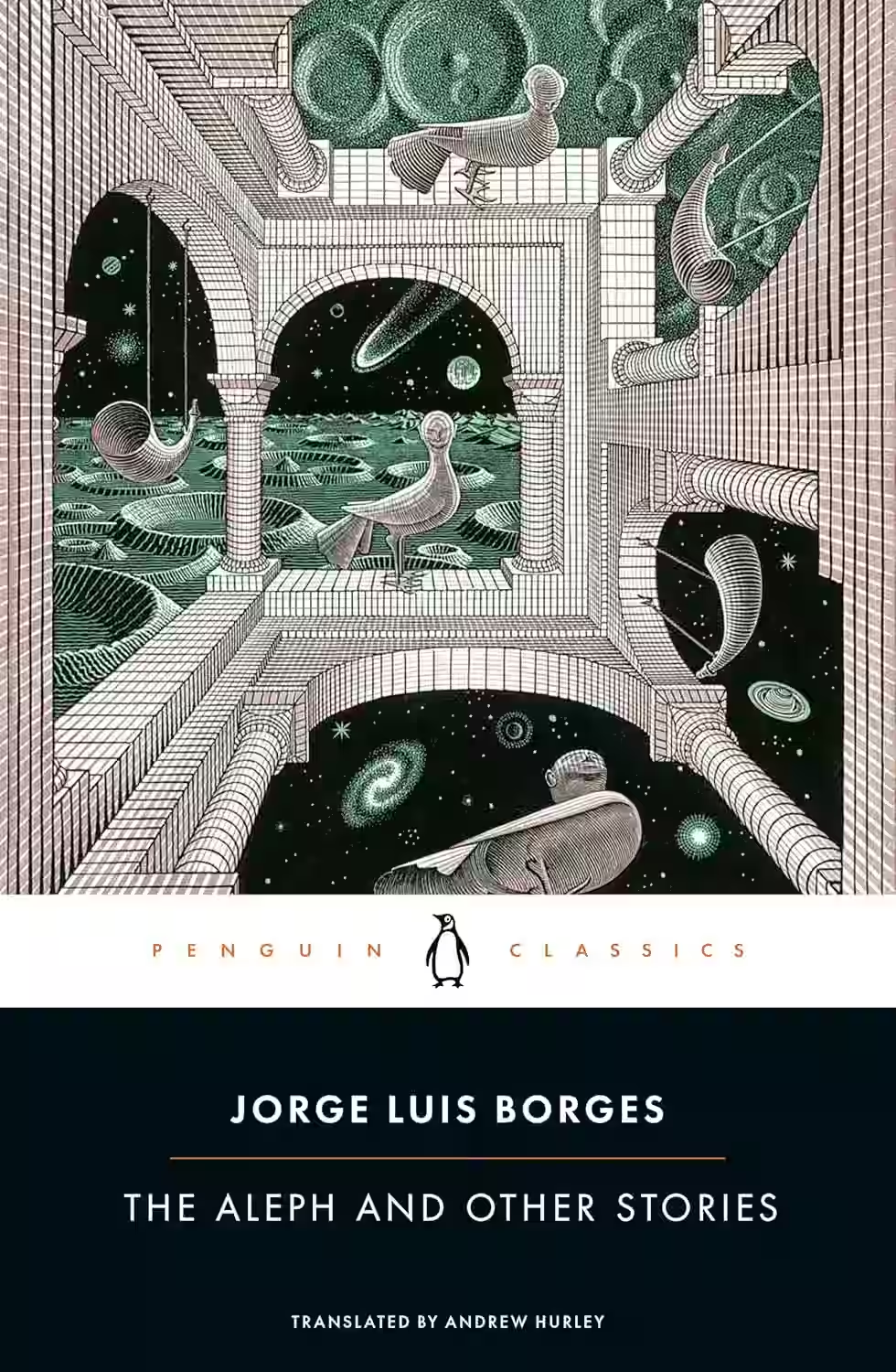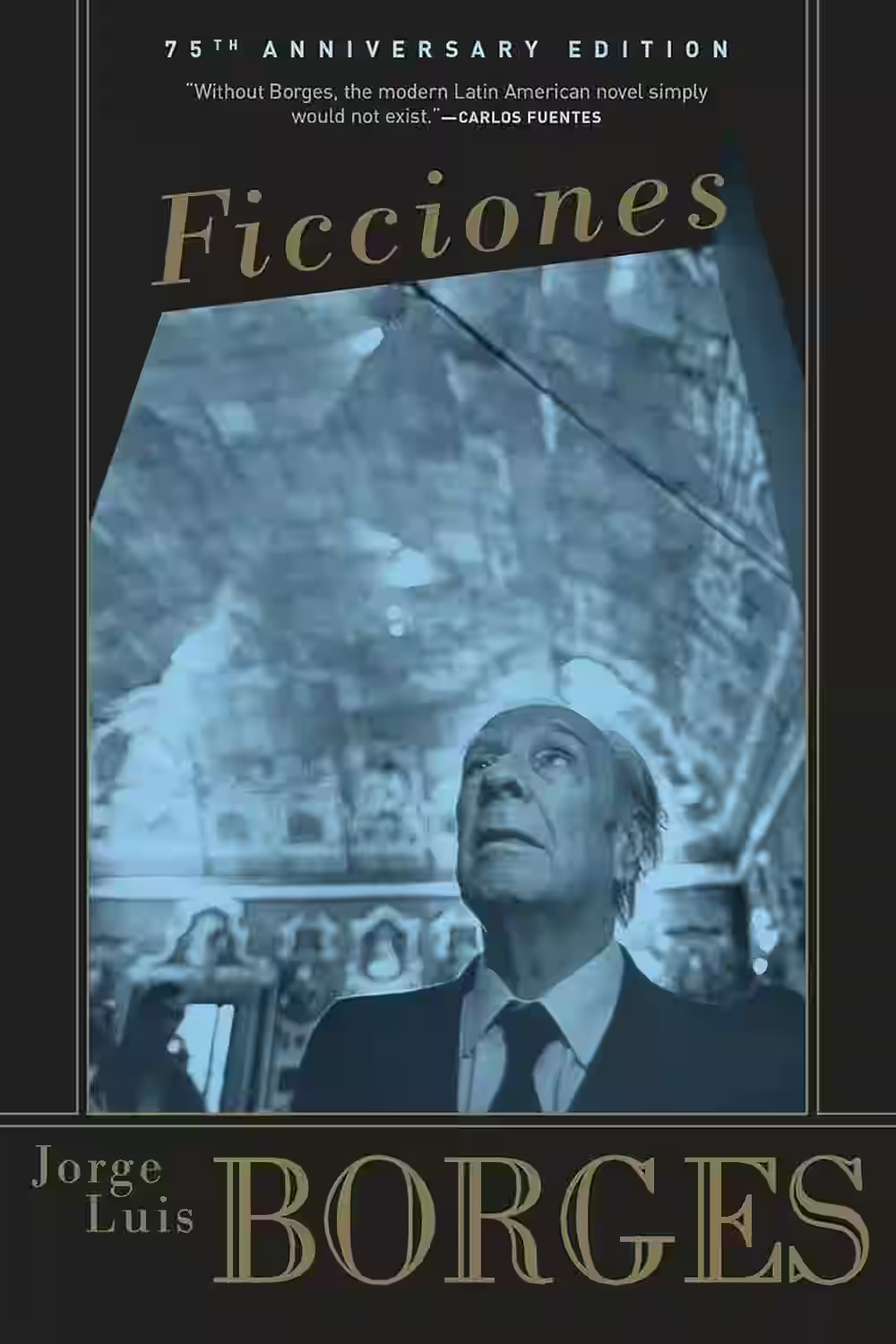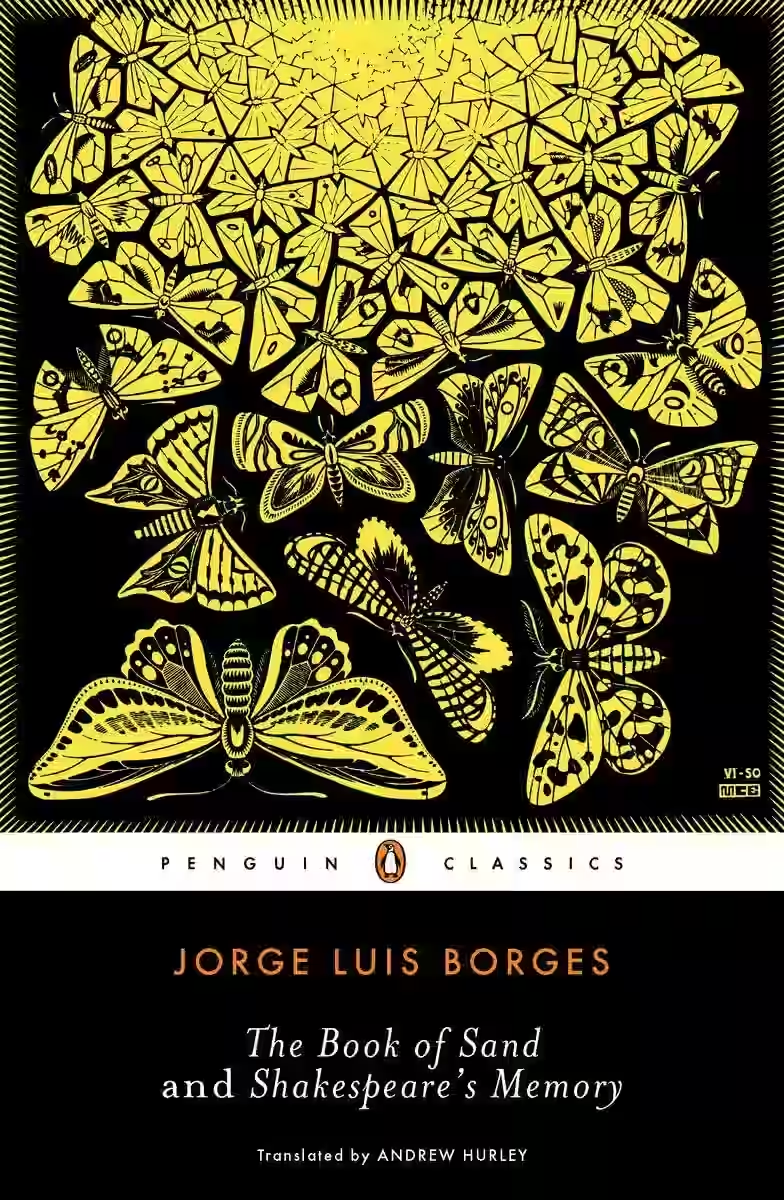Jorge Luis Borges
An Argentine short-story writer, essayist, poet, and translator, considered one of the most significant figures in 20th-century literature. His labyrinthine, philosophical short stories often explored themes of infinity, identity, mirrors, dreams, and reality, blurring the lines between fact and fiction. Borges's intellectually stimulating and meticulously crafted prose, filled with intricate allusions and metafictional elements, created a unique literary universe that continues to influence writers and thinkers worldwide.

The Aleph is a collection of short stories by Argentine writer Jorge Luis Borges, blending metaphysics, literature, and fantasy. The title story centers on a man who discovers a point in space—the Aleph—that contains all other points, allowing him to see the entire universe simultaneously. The collection explores themes of infinity, memory, identity, and the nature of reality, often through imagined texts, paradoxes, and labyrinths. Rich in philosophical depth and literary allusion, The Aleph exemplifies Borges’ unique style: intellectually rigorous yet imaginatively expansive. These stories challenge perception and remain profoundly influential in both world literature and speculative fiction.

Ficciones is a celebrated collection of short stories by Argentine author Jorge Luis Borges, blending philosophy, literature, and speculative fiction. Each story is a mind-bending exploration of reality, time, identity, and infinity. Borges uses fictional texts, labyrinths, mirrors, and imagined worlds to question the nature of truth and knowledge. Highlights include “The Library of Babel,” where the universe is imagined as an infinite library, and “Tlön, Uqbar, Orbis Tertius,” about a fictional world overtaking reality. Rich in allusions and intellect, Ficciones is a masterwork that continues to influence writers, philosophers, and readers around the globe.

The Book of Sand by Jorge Luis Borges is a haunting short story exploring the infinite and unknowable. Narrated by a retired librarian, the tale follows his encounter with a mysterious book—a volume without beginning or end, its pages rearranging themselves endlessly. As the narrator becomes obsessed, the book’s paradoxical nature leads him into existential dread and a loss of control. Borges uses this fictional artifact to meditate on the nature of infinity, obsession, and the limits of human understanding. A masterful blend of metaphysical horror and philosophical reflection, the story is a chilling reminder of knowledge’s seductive and perilous power.